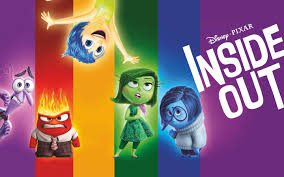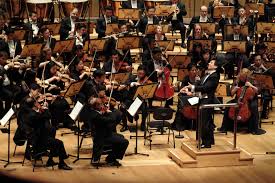
Conductor Adrian Chiang chose the lively and upbeat ‘Cha-Jumbo” as the opening piece for this concert by the Philharmonic Youth Winds (PYW), which was established in 2002.
The highlight of the concert came immediately after, in the form of well-known local and international mezzo-soprano Khor Ai Ming, who has performed to many full-house concerts, even garnering a standing ovation in 2014.
Khor is without doubt the most competent of all the singers in this concert. This is not only well-demonstrated in her solo renditions of evergreens such as “Ye Lai Xiang” but also in a contemporary favourite “A Better tomorrow”with all the singers in the finale.
When she launched into the song “Unending Love” from Lin Dai’s famous black-and-white film “Unforgettable”, she brought a tear to my eye. It was a very emotional rendition and reminiscent of an earlier concert in which she sang this song as an encore, in tribute to her brother who had succumbed to cancer.
This was also one of the first songs her mother taught her, as was “Shanghai At Night”, which she sang as one of a medley including Zhou Xuan and Yao Li’s songs. (The other two are “Rose, Rose I Love You” and “Cupid’s Aarrow”).
Following this, a member of the PYW (Jiang Jun Ming) played a beautiful solo on his euphonium. Regretfully, I couldn’t recall the title of the piece,. I lamented the fact that there was no programme booklet. Money spent on the neon olight sticks (which were grossly under-used) could have been better spent!
The next to perform was a contestant at the first Singapore Idol, Jay Lim. He is a vocal trainer at a music school and has good vocal techniques and control, never lettiing himself be overwhelmed by the orchestra, even at tutti. However, his rendition of “Heaven On Earth” (“Tian Shang Ren Jian”) is nowhere near Fei Yu Qing’s version. Neither could I make out Jacky Cheung’s “Please Don’t Go” (originally a Japanese song, sung here in Cantonese), the song played on air immediately after the announcement of LKY’s passing.
Two other songs, “Love Without End” (“Ai Ni Ai Bu Wan”) by Aaron Kwok and “Kopi-O” by Eric Moo have been chosen apparently because they are upbeat and energetic tunes. Unfortunately, the singer;s enthusiasm did not come through and response from the audience was lack-lustrre.
Watching his performance live, I can better understand why Lim did not go far in the competition. It is lacking in what is generally referrred to as stage presence/charisma or X-factor.
Act 2 began well and drifted into disappointment. Marcus Huang, as guest conductor, led the PYW in a lovely medley of familiar xinyao tunes. I could make out only a few by Liang Wern Fook, Roy Loi and Eric Moo. Again, what a pity there was no programme. (Neither did the compere make any announcement regarding the songs.)
Lindy Chia and her father Xie Jin Shi, a past Talentime winner, were next. Lindy’s performance was competent but forgettable. Xie was a let-down, with his Hokkien songs, a debut performance of “Singapore River” (which was entered in a competition 28 years ago but did not win) and a medley of Liu Jia Chang’s songs. I was dissapointed that his voice was drowned by the orchestra in many places! It also occured to me that his performance would be more apt for the heartlands than a concert hall with fine acoustics. It reminded me of what superstar Jenny Tseng said in an interview after his Talentime win: “He is not cut out for entertainment.”
A father-daughter duet was further disappoiuntment, until they were joined by Khor and Lim at the finale.
An encore by the PYW of locally-composed songs rounded off the concert which, despite certain let-downs, was essentially worth the price of the ticket!









